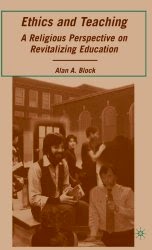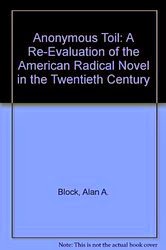April is Certainly the Cruelest Month
T.S. Eliot said, “April is the cruelest month,” and indeed, this April has been most unkind. It is now nearing the end of April and during the entire month the sun has shone minimally and the rain has fallen seemingly continually. It was raining the morning I began this post, and during what was supposed to be a break in the rain I went out for my walk, but as soon as I stepped out of doors a rain shower began. I pulled up my jacket hood and headed out anyway. Earlier this month snow showers fell insultingly. What is so cruel about April is that it promises Spring here in the Midwest, but here in the Midwest April does not deliver. April dampens the spirit. The forecast announces that thunderstorms will continue for the next several hours! When I was young my mother would explain that thunder arose from the clouds crashing (but she may have said bumping!) into each other. I do not mind thunder; the most frightening thunderstorm I have ever experienced was in Spielberg’s film, Poltergeist.
I have spent the past several years reading detective novels and streaming detective shows on the computer screen. I view shows regularly to help me out of my head and away from the dirty world of politics. As I exhaust one series season and when it might hurt too much to think I search for some new program to occupy myself. I have seen a great many shows. I have already exhausted Inspector Lewis, Morse, Endeavor (eighth season to air sometime soon, I hope), Vera, A Touch of Frost, Shetland, Broadchurch, Unforgotten, Prime Suspect, Murder in Paradise, Pie in the Sky, Professor T, The Paris Murders, The Nordic Murders . . . and a not a few of which I am ignorant and some I’ve since not remembered. I even watched a few I didn’t even enjoy: Bosch, and DCI Banks, for examples, and a few other paired detectives on British telly. This past week I discovered Annika with Nicola Walker. I have always enjoyed her presence on the screen: she was wonderful in The Split. She was the lead detective in Unforgotten! Annika is a new detective show centered about a Marine Homicide Unit in Glasgow, and Walker is the Detective Inspector. In several ways Annika is typical of detective shows I have been watching obsessively for the past several years and especially since the onset of the pandemic. (Hmm, detective shows, mostly murder mysteries, during the pandemic: what is that about?). As in so many of these presentations, there is a chief detective—in Annika Walker plays the chief detective—who is supported by a team of young, usually multi-racial and multi-age fast-talking and highly competent associates. Within the team there are conflicts, both personnel and professional, but the comradery is unquestioned. Often in the show the superintendent or commandant is often a woman, as often are the chief detectives, in Annika, that role is played by Nicola Walker. Forensic pathologists, too, have been often female and become love interests of and for the male detectives. In Annika Nicola Walker begins a tentative relationship with her daughter’s first therapist but the conflicts become too great and the relationship is put on pause. We’ll see what happens to the couple if there is a season two, though at the end of season one Annika reveals that one of her team is actually the father of her daughter though clearly of this fact he is unaware. The children of the detectives are often troubled by being singly parented and the consistent danger the job requires of that parent; as in so many of these shows, the detective is divorced, widowed or widowered; as in so many of these shows the detective chooses to be alone rather than engage in a serious relationship, the exception being Midsommer Murders. In that very British show the detective is happily married and their daughter enjoys a seemingly untroubled existence. Of course, there are exceptions to this model, but I have seen few detectives maintain an untroubled relationship for very long. In Vera and A Touch of Frost, the detective chooses to remain isolated and alone.
But what seems so different about Annika is that Walker (as Annika) breaks through the fourth wall that separates players from audience. Annika talks to the viewer (as did Phoebe Waller-Bridge in Fleabag) and in her talking creates a sort of intimacy with the viewer. These addresses are not soliloquies—externalizations of interior thought not meant to be overheard but supposedly private behind the fourth wall—but are, rather, direct communications to an audience, but expecting not an oral but an intellectual response. Annika doesn’t directly talk about the case itself but about the personal conflicts in her life that might include the present investigation. And to do so she references works of literature that present parallel situations and conflicts and that offer commentary on her present professional and personal situation. Norse myths. Greek myths. Homer. Ibsen. Shakespeare. She does not directly draw the comparison between the references and her present situation—her references are not similes— but her direct address to the viewer expects that the viewer will understand the connections. What she appears to announce is that issues such as hers have been considered before, and her references suggest that literature might sometimes offer insight into the situation! When she talks to the viewer Annika transforms the entire murder investigation in any one show into metaphor. She teaches: her literary references universalize her situation, suggesting that her experiences and conflicts are not isolated and solitary. Annika aspires to a modest level of intellectuality!












